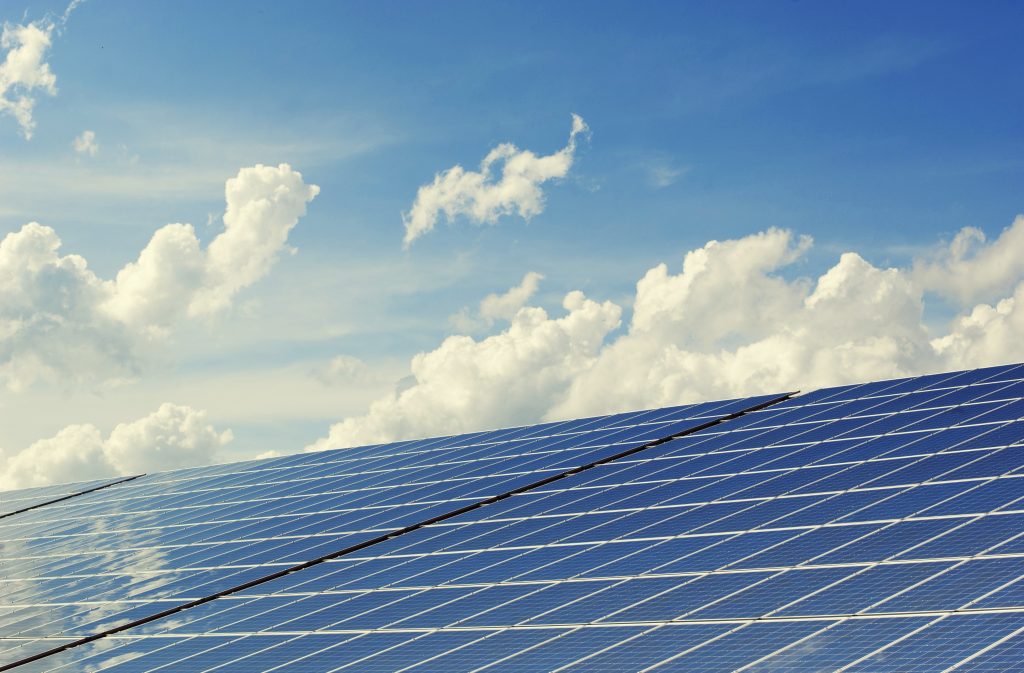Achieving Net Zero Would Expand Wisconsin’s Economy While Saving Billions in Healthcare Costs
There is a pathway for Wisconsin to achieve a net-zero future within a generation. New detailed energy and economic modeling shows Wisconsin can cost-effectively transition to net-zero emissions by 2050, reaching a point where we emit no more carbon into the atmosphere than can be removed.
According to a pair of new studies, reaching net zero by 2050 will require aggressive action at virtually every level, from the rapid deployment of clean energy resources like wind and solar to the development of new technologies and expanded transmission. But the benefits of these large-scale investments in Wisconsin are far-reaching:
- $2-4.4 billion in avoided healthcare costs in 2050
- 28 to 63 fewer deaths per million people from air pollution in 2050
- Growth in Gross State Product by approximately 3%, adding around $16 billion to Wisconsin’s economy and 68,000 additional Wisconsin jobs
- Lower out-of-pocket costs for fuel and energy
- An astounding reduction in greenhouse gas emissions—some 122 million metric tons by 2050
The Achieving 100% Clean Energy in Wisconsin Report, produced by Evolved Energy Research, GridLab, RENEW Wisconsin, and Clean Wisconsin, analyzes various pathways for the state to rapidly draw down carbon emissions over the next three decades. The study uses advanced power systems modeling and the latest clean energy technology and cost data to demonstrate viable pathways for Wisconsin to achieve significant carbon reductions. The report finds that transitioning to 100% clean electricity while eliminating carbon emissions from the building, transportation, and industrial sectors, is the most cost-effective method to reduce emissions in Wisconsin. Costs are comparable to the cost of only reaching a 100% clean electricity standard by 2050 but deliver far more economic and health benefits.
A companion study, The Economic Impacts of Decarbonization in Wisconsin, by Cambridge Econometrics, analyzes the economic and employment impacts of this economy-wide transition to clean energy in Wisconsin. The report finds that transitioning to a net-zero economy will reap dramatic benefits for Wisconsin’s economy, creating 68,000 additional jobs and boosting Gross State Product by 3% in 2050. Wisconsin’s labor market is well prepared to meet these new labor needs, with 5,000 engineering degrees and certificates awarded annually. The employment opportunities will encompass all skill levels, part of a more inclusive economy transition.
What happens if Wisconsin doesn’t choose this path to a net-zero economy? In every scenario, costs are higher, and outcomes for Wisconsinites are poorer. Changing nothing, the Baseline Scenario, results in far higher energy and health costs. Only focusing on the electricity sector, 100% clean electricity by 2050, requires a comparable investment to net zero but brings only modest carbon reduction and higher health costs. And making these investments more slowly, delaying aggressive action by 10-15 years, comes with a much higher price tag.
There are all kinds of adjectives to describe the next steps on this pathway to net-zero by 2050—bold, robust, aggressive, visionary. But the first step is the one we have just taken, one that shows a healthier, more resilient, and prosperous Wisconsin within reach.
Mark Redsten, President & CEO, Clean Wisconsin: “We talk about building a better world for our kids and grandkids, and this is it. This model shows us the future we can have in Wisconsin if we are willing to do the hard work that gets us there—more jobs, healthier communities, finally making progress in the fight against climate change. It’s not a fantasy. The pathway to that future is right here, and it leads us to a healthier, more prosperous Wisconsin.”
Andrew Kell, Policy Analyst, RENEW Wisconsin: “Our zero-carbon study provides a comprehensive roadmap for Wisconsin, which is great news for our clean energy future. The results of these reports outline a dramatic transition to a clean energy economy leading to demonstrable economic, health, and job benefits for Wisconsinites. With proper planning and policies in place, Wisconsin can follow this roadmap and reap the benefits of a zero-carbon future. This is just the start of a dialog on how Wisconsin can get to zero carbon emissions by 2050.”

